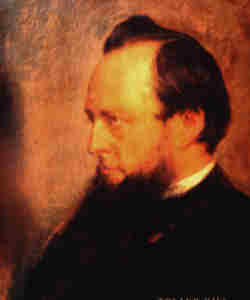
AnthonyFlood.com
Philosophy against Misosophy

From Murray N. Rothbard, The Ethics of Liberty, Chapter 3.
". . . the great Catholic libertarian historian . . . ."
Murray N. Rothbard
While natural-law theory has often been used erroneously in defense of the political status quo, its radical and “revolutionary” implications were brilliantly understood by the great Catholic libertarian historian Lord Acton. Acton saw clearly that the deep flaw in the ancient Greek—and their later followers’—conception of natural law political philosophy was to identify politics and morals, and then to place the supreme social moral agent in the State. From Plato and Aristotle, the State’s proclaimed supremacy was founded in their view that “morality was distinguished from religion and politics from morals; and in religion, morality, and politics there was only one legislator and one authority.”[3]
Acton added that the Stoics developed the correct, non-State principles of natural law political philosophy, which were then revived in the modern period by Grotius and his followers. “From that time it became possible to make politics a matter of principle and of conscience.” The reaction of the State to this theoretical development was horror:
When Cumberland and Pufendorf unfolded the true significance of [Grotius’s] doctrine, every settled authority, every triumphant interest recoiled aghast. . . . It was manifest that all persons who had learned that political science is an affair of conscience rather than of might and expediency, must regard their adversaries as men without principle.[4]
Acton saw clearly that any set of objective moral principles rooted in the nature of man must inevitably come into conflict with custom and with positive law. To Acton, such an irrepressible conflict was an essential attribute of classical liberalism: “Liberalism wishes for what ought to be, irrespective of what is.”[5] As Himmelfarb writes of Acton’s philosophy:
the past was allowed no authority except as it happened to conform to morality. To take seriously this Liberal theory of history, to give precedence to “what ought to be” over “what is” was, he admitted, virtually to install a “revolution in permanence.”[6]
And so, for Acton, the individual, armed with natural law moral principles, is then in a firm position from which to criticize existing regimes and institutions, to hold them up to the strong and harsh light of reason. Even the far less politically oriented John Wild has trenchantly described the inherently radical nature of natural-law theory:
the philosophy of natural law defends the rational dignity of the human individual and his right and duty to criticize by word and deed any existent institution or social structure in terms of those universal moral principles which can be apprehended by the individual intellect alone.[7]
[3] John Edward Emerich Dalberg-Acton, Essays on Freedom and Power (Glencoe, Ill.: Free Press, 1948), p. 45. Also see Gertrude Himmel-farb, Lord Acton: A Study in Conscience and Politics (Chicago: University of Chicago Press, 1962), p. 135. [Go here for the text of "The Vatican Council," a chapter of this book.]
[4] Acton, Essays, p. 74. Himmelfarb correctly noted that “for Acton, politics was a science, the application of the principles of morality.” Gertrude Himmelfarb, “Introduction,” ibid., p. xxxvii.
[5] Himmelfarb, Lord Acton, p. 204. Contrast the exclamation of bewilderment and horror by the leading nineteenth-century German Conserva-tive, Adam Muller: “A natural law which differs from the positive law!” See Robert W. Lougee, “German Romanticism and Political Thought,” Review of Politics (October 1959): 637.
[6] Himmelfarb, Lord Acton, p. 205.
[7] John Wild, Plato’s Modern Enemies and the Theory of Natural Law (Chicago: University of Chicago Press, 1953), p. 176. Note the similar assessment by the conservative Otto Gierke, in Natural Law and the Theory of Society, 1500 to 1800 (Boston: Beacon Press, 1957), pp. 35–36, who was for that reason hostile to natural law:
In opposition to positive jurisprudence, which still continued to show a Conserva-tive trend, the natural-law theory of the State was Radical to the very core of its being. . . . It was also directed . . . not to the purpose of scientific explanation of the past, but to. . . the exposition and justifi-cation of a new future which was to be called into existence.